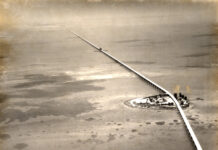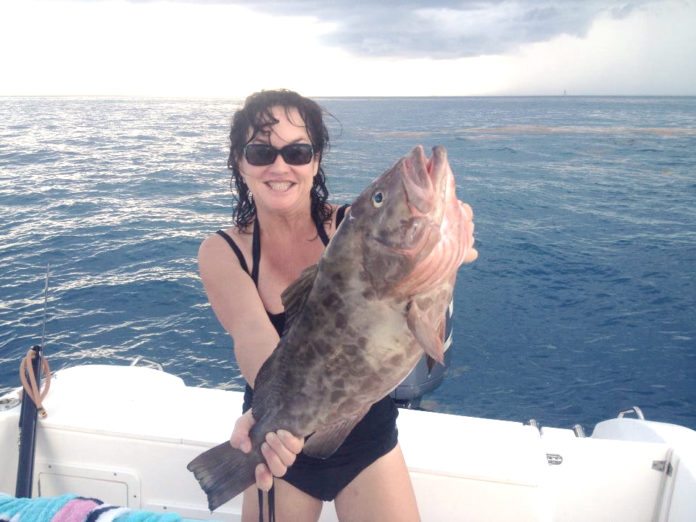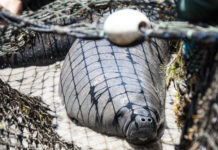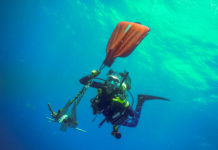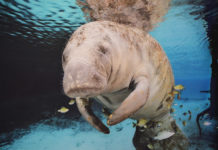Pay attention to patterns, conditions
By Dr. Ashley Hoyt
One of my shooting grounds is around the jetties in the Northwest Channel off Key West. Toward the middle there is an old wreck. One day when I was hunting there I saw a big school of chub and grey snapper migrating back and forth in a synchronized, yet agitated, fashion. As they approached the edge of visibility it looked like a wall of pegboard, except it was rows and rows of fish heads. Some of the snapper were large, 20 plus inches. Each time they would pass by me I would spear one. Later I found out my dive buddy was doing the same thing a safe ways away.
I recognized this formation was strange but didn’t pick up on anything more. I continued to hunt.
And then I saw it. In the turquoise water just on the edge of sight was a long shadow quickly approaching —a bull shark. It was feeding, and there I was, interrupting its lunch.
The shark may not have been interested in me, but I could have been considered unwanted competition. Even though I coexist in the ocean with other predators, it’s important to know when to give them their space. If there’s a time to give a bull shark space, it’s while it’s feeding.
Luckily it was low tide and the rocks of the jetty jutted above the surface of the water. My dive buddy and I crawled up onto one and waited a few minutes for the feed to end. Then our curiosity took over. We laid on our bellies across the rocks with only our masks in the water. We continued to shoot as the schools of snapper that rushed by. After adding a few snapper to our own dinner menu, everything returned to a normal pace under the sea. With no shark in sight, we swam back to the boat.
The lesson learned was that the ocean is full of signs. You can tell what’s in the water by the behavior of the fish. If we assume we know everything, then we put ourselves at a disadvantage. With observation and attention to detail you can learn what the ocean has to tell you.
By Dr. Ashley Hoyt is a doctor of acupuncture medicine and an avid, lifelong spearfisherman.





